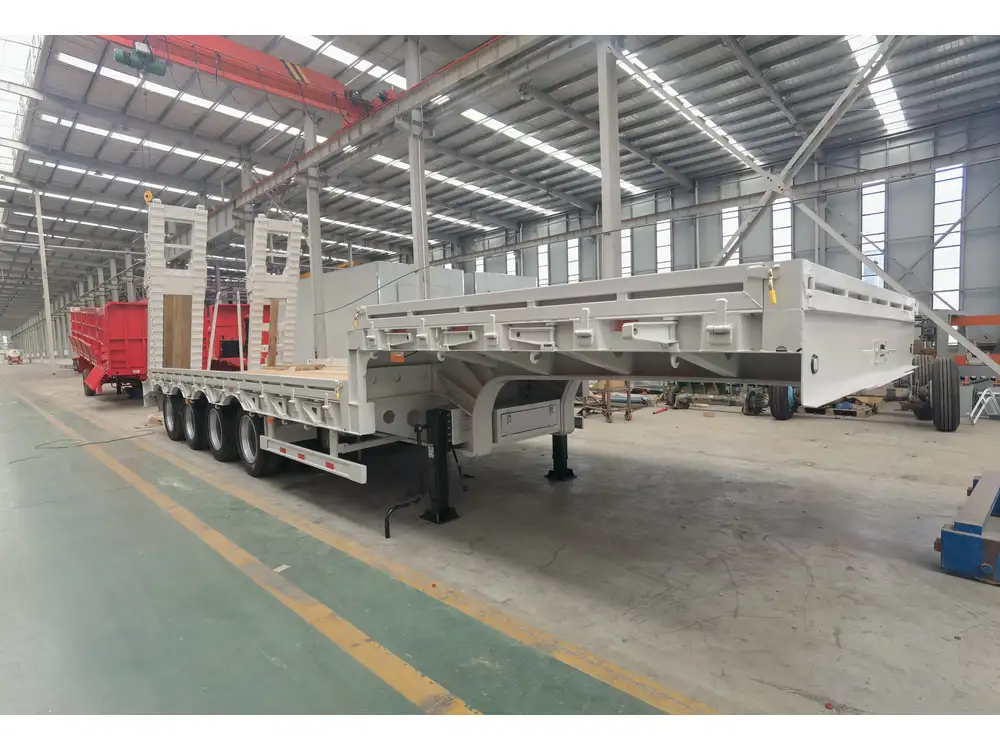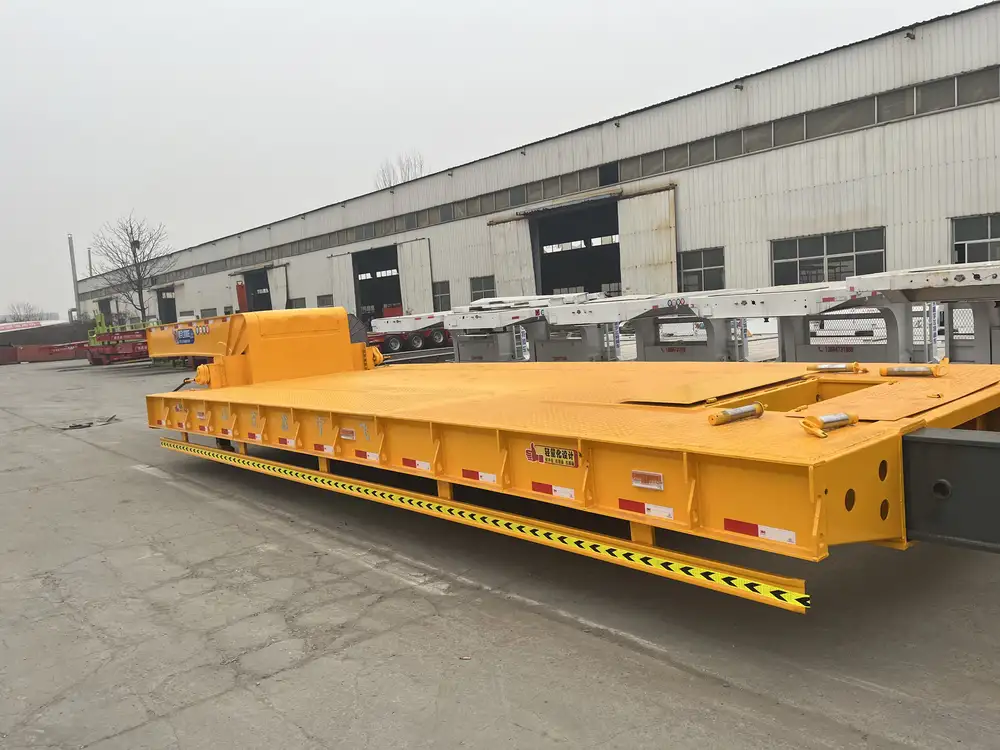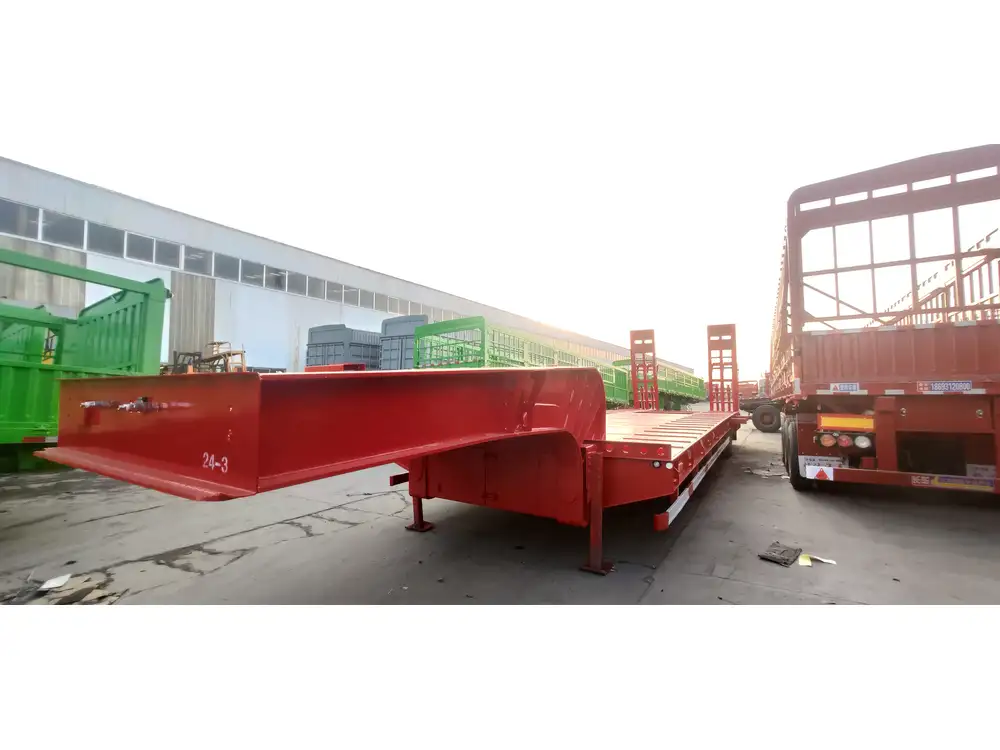Flatbed trailers are invaluable assets for transportation, offering versatility and efficiency for transporting goods. Yet, their usage brings forth crucial responsibilities, not least of which is understanding insurance requirements. This article explores the necessity of insurance for flatbed trailers, the types of coverage available, potential risks, and best practices for ensuring your trailer and cargo are adequately protected.
Understanding the Legal Requirements for Flatbed Trailer Insurance
Federal and State Regulations
Flatbed trailer insurance is not just a matter of preference; it often hinges on legal requirements. The Federal Motor Carrier Safety Administration (FMCSA) sets forth guidelines that can vary significantly from state to state. Businesses operating commercial flatbed trailers typically need to carry liability insurance. Here’s a bullet-point breakdown of prevalent regulations:
- Liability Insurance: Required for all commercial vehicles. It covers damages to other parties in the event of an accident where you are at fault.
- Cargo Insurance: While not federally mandated, many states recommend or require carriers to have cargo insurance to cover losses if freight is damaged or lost during transit.
- Physical Damage Insurance: Protects your flatbed trailer from damage due to collisions, theft, or natural disasters.
It’s imperative to consult your state’s regulations to ensure compliance, as violations can lead to hefty fines and legal complications.

Commercial vs. Personal Use
Understanding whether your flatbed trailer is utilized for commercial or personal purposes greatly influences your insurance needs:
- Commercial Use: If you are using your trailer to transport goods for a business, higher liability limits and additional coverages are typically required. You may also need specialized insurance, such as motor truck cargo insurance, which covers your load while in transit.
- Personal Use: Trailers used strictly for personal purposes may not demand the same level of insurance. However, it’s still prudent to have liability coverage to safeguard against unforeseen damages.
Types of Insurance Coverage for Flatbed Trailers
Liability Insurance
Liability insurance is the cornerstone of truck and trailer insurance. Let’s dissect its components:
| Coverage Type | Description | Mandatory? |
|---|---|---|
| Bodily Injury | Covers costs related to injuries you cause others. | Yes |
| Property Damage | Covers damages to another party’s property. | Yes |
| Uninsured/Underinsured Motorist | Protects you if you’re in an accident with an underinsured driver. | Varies by state |
This type of insurance not only protects against financial losses resulting from accidents but also aids in maintaining your business’s credibility and compliance with laws.

Cargo Insurance
When it comes to flatbed trailers, ensuring the cargo is just as critical as protecting the vehicle itself. Cargo insurance covers the following:
- Damage: In case your cargo is damaged due to accidents or other incidents.
- Theft: If your load is stolen, this insurance can cover its replacement.
- Loss: Coverage for incidences where cargo cannot be recovered, often due to accidents.
Physical Damage Insurance
Physical damage insurance encompasses coverage for the flatbed trailer itself, including:
- Collision Coverage: Covers damages to your flatbed trailer resulting from a collision, regardless of fault.
- Comprehensive Coverage: Protects against non-collision incidents such as vandalism, theft, or natural disasters.
Comprehensive vs. Collision Insurance
Understanding the difference between these two types of physical damage insurance is crucial for effective decision-making.
| Insurance Type | Coverage Includes |
|---|---|
| Comprehensive | Non-collision incidents (e.g., theft, vandalism, fire) |
| Collision | Damages from accidents, regardless of fault |

The Risks of Not Having Insurance
Navigating the world without adequate insurance can pose significant risks. Here’s why securing the right coverage is essential:
Financial Vulnerability
Without insurance, any damage to your flatbed trailer or the cargo it carries can lead to overwhelming costs. This financial vulnerability can escalate quickly, especially if accidents occur frequently or cargo is particularly valuable.
Legal Ramifications
Failing to comply with state and federal insurance requirements can result in:
- Fines: Many states impose hefty penalties for lack of insurance.
- Legal Liability: In the case of an accident, you might be held personally liable for damages and medical expenses, leading to potential bankruptcy.

Increased Operational Disruptions
Without proper coverage, your business operations can face severe interruptions:
- Repairs and Downtime: The lack of insurance means footing repair costs alone, potentially leading to significant downtime while the vehicle is not operational.
- Loss of Income: If you can’t transport goods due to an unprotected incident, consider the lost income during that period.
Essential Considerations When Purchasing Insurance
Assess Your Needs
- Nature of Operations: Evaluate how you use your flatbed trailer. Is it for transporting heavy machinery, construction materials, or standard freight?
- Frequency of Use: The more you use the flatbed trailer, the higher the risk of potential incidents. More frequent use may necessitate higher coverage limits.

Compare Insurance Providers
Choosing an insurance provider isn’t an easy task. Optimal decisions depend on a thorough comparison:
| Factors to Compare | Description |
|---|---|
| Premiums | Find a balance between affordable premiums and adequate coverage. |
| Coverage Options | Ensure the provider offers customizable coverages tailored to your needs. |
| Customer Reviews | Research feedback to gauge reliability and satisfaction. |
Work with an Insurance Agent
Navigating the complexities of insurance doesn’t have to be daunting. Collaborating with an experienced insurance agent can provide tremendous benefits:
- Tailored Advice: Agents can help identify the specific coverage your operations need.
- Policy Management: Experienced agents can assist in managing claims and modifications to policies over time.
Frequently Asked Questions about Flatbed Trailer Insurance

1. How much does flatbed trailer insurance cost?
The cost varies significantly based on numerous factors including:
- Your state’s insurance regulations
- The size and weight of the trailer
- The cargo type you frequently transport
- Your driving history
Average premiums can range from $1,000 to $3,000 annually.
2. Can I get insurance coverage for a used flatbed trailer?
Yes! Insurance companies provide options for used trailers, but the premiums may differ based on the trailer’s condition, age, and safety features.
3. Will my personal truck insurance cover a flatbed trailer?
Typically no. Personal truck insurance often lacks the scope required for commercial use or specialized trailers like flatbeds. It’s advisable to explore dedicated commercial insurance policies for flatbed trailers.

4. Is cargo insurance really necessary?
While not legally required, cargo insurance provides peace of mind and financial protection. Unforeseen accidents can jeopardize your cargo, leading to substantial losses without coverage.
Best Practices for Flatbed Trailer Insurance Management
Conduct Regular Safety Audits
Regularly review your safety practices to mitigate risks and improve safety compliance. Enhancing practices may lead to lower insurance premiums as carriers prioritize risk management.

Keep Documentation Up to Date
Maintain accurate records of all insurance documents, including policies, claims, and communications with the insurance provider. In case of an accident, having organized documentation can speed up claims processing.
Understand Policy Renewals
Keep an eye on your policy renewal dates. Before renewal, reassess your operational needs to adjust coverage levels as necessary based on changes in your business.
Educate Your Team
Ensure that anyone operating the flatbed trailer understands the importance of safe operation and compliance with insurance policies. This education can significantly minimize risks and promote accountability.
In conclusion, the question “Do you need insurance for a flatbed trailer?” underlines the importance of due diligence in safeguarding your assets. Adequate insurance is critical not only for compliance and financial protection but also for maintaining your business’s reputation and viability. Whether your flatbed trailer is utilized for personal or business purposes, understanding insurance intricacies will enhance operational security and ease your mind in navigating the complexities of trailer ownership and transport logistics.



